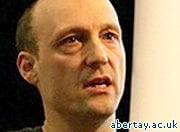The state guardians appointed to every child in Scotland are being trained to be “suspicious of parents”, a sociology expert has warned.
Dr Stuart Waiton, Senior Lecturer in Sociology at Abertay University, cautioned that the “potential for gross interference” in family life is “extraordinary”, if the SNP’s Named Person scheme goes ahead.
Dr Waiton was speaking as the Holyrood Parliament debated the scheme, which has been criticised by teachers, social workers and the police in recent months.
Suspicion
Dr Waiton outlined a major problem with the Named Person scheme, that “every single professional who comes into contact with children is being trained to be suspicious of parents.”
“Rather than using their common sense, their professional judgment and their basic humanity to recognise problems they are being educated to be risk averse, to think ‘safety’, and danger, and to intervene in a family’s life based on minor issues.”
The lecturer argued that the scheme has the potential to destroy the traditional right to private family life by creating an assumption that all parents need assistance from the state to bring up their children.
Wellbeing
… every single professional who comes into contact with children is being trained to be suspicious of parents.
Dr Stuart Waiton
During a debate in the Scottish Parliament yesterday, Scottish Labour MSP Mark Griffin, expressed concern over the scheme, despite his party being broadly supportive of it. Mr Griffin pointed out that teachers and health visitors will be expected to carry out the Named Person role “on top of their usual duties, with no extra resources”.
The MSP also said that “the resources to provide training will all fall on local authorities and health boards, with no extra financial support”.
Scottish Conservative spokeswoman for young people, Liz Smith MSP, said it is implicit in the Named Person scheme that, “the state, rather than parents and families, has the primary obligation to look after children”.
Both members drew attention to the low threshold for intervention under the scheme, which is defined in terms of the ‘wellbeing’ of a child. Mr Griffin warned that the “definition of wellbeing is vague and open to a wide range of interpretations”.
legal action
Final draft guidance for the Children and Young People Act, which includes the Named Person scheme, was published by the Scottish Government on Tuesday.
The scheme is due to be rolled out in its full statutory form in August 2016 but pilot schemes are already operating in many parts of the country.
A case against the Named Person scheme is to go before the Supreme Court on 8 March next year.
The legal challenge against the Named Person legislation is being contested by a coalition of groups including The Christian Institute, CARE (Christian Action Research and Education), TYMES Trust and the Family Education Trust.

